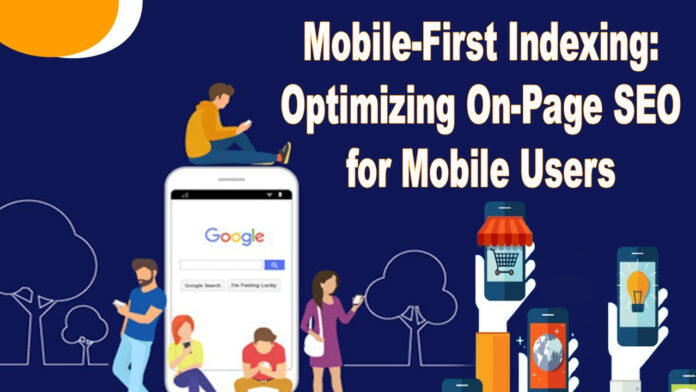In today’s digital age where smartphones have become an integral part of our daily lives, it’s no surprise that search engines are adapting to the mobile-centric trend. Enter Mobile First Indexing is a significant change in the way websites are ranked on search engines like Google. This shift means that search engines now prioritize the mobile versions of websites over their desktop counterparts when determining rankings. In simpler terms, if your website is not ready for the mobile spotlight it might lose out on visibility and potential visitors. So let’s explore what Mobile First Indexing is all about and how you can ensure your website is prepared for this mobile-focused revolution.
Table of Contents
Understanding Mobile First Indexing
For example search engines as helpful librarians trying to organize and recommend the best books (websites) to people. In the past, these librarians mainly used big sturdy bookshelves (desktop versions) to find the best books. But now they’ve noticed that more and more people are using smaller bookshelves (mobile devices) to discover new stories. So to keep up with what people like the librarians have decided to pay extra attention to how well books fit on those smaller shelves. That’s what Mobile-First Indexing is all about making sure websites look good and work well on the smaller “bookshelves” (phones and tablets).
Now let’s think about your website as a fantastic book that everyone should read. To make sure people can find and enjoy your book you need to make it friendly for both big and small bookshelves. This means your website should be like a flexible storyteller that adjusts its tale whether someone is reading it on a big library desk or a cozy couch with a tablet. So when the librarian (search engine) sees how well your book fits on those smaller shelves they’ll be more likely to recommend it to readers searching for something interesting. That’s why understanding and preparing for Mobile First Indexing is like giving your website the right tools to be a captivating story for everyone no matter the size of their “bookshelf.”
The Importance of Mobile Friendly Websites
Having a mobile-friendly website is like making sure your favorite game can be played on any device be it a big computer or a small phone. It’s essential because many people use their phones to go online and find what they need. Think of it like this if your website is a fun game and it only works well on a big computer screen people using their phones might miss out on all the excitement.
Now imagine your website is a cozy café. If the café is welcoming and comfortable for everyone more people will stop by and enjoy a cup of coffee. A mobile-friendly website is like that inviting café making it easy for visitors using phones or tablets to explore and enjoy what you offer. So if your website is like a game or a café making it mobile-friendly is like saying “Come on no matter what device you’re using we’re here for you!” It’s all about making sure everyone can have a good time on your website no matter the size of their device.
Steps to Ensure Mobile First Readiness
To make sure your website is ready for Mobile First think of it like preparing for a party where everyone whether they have a big or small invite has a great time. First, make your website flexible like a superhero costume that fits any adventure. Use a responsive design so it looks fantastic on both big computer screens and tiny phone screens. Next speed up your website like a fast race car visitors love it when things load quickly. Reduce the size of big pictures and tell the servers to be quick for a faster more enjoyable experience. Use clear signs like easy-to-read headlines and images to guide visitors through your website like a well-marked map. Lastly, get your data right by using structured data it s like presenting a tasty recipe that search engines (like Google) can easily understand helping them recommend your website more effectively. With these steps, your website will be dressed up and ready for the party ensuring that everyone no matter their device can have a fantastic time exploring what you have to offer.
- Responsive Design
Responsive design is like having a superhero costume for your website that can magically fit different sizes. Instead of being rigid and fixed a responsive website adjusts itself to look great on both big computer screens and small phone screens. It’s like having a friendly chameleon that changes its colors to match its surroundings making your website user-friendly for everyone no matter the device they use. So with responsive design, your website becomes adaptable and ready to shine on any screen size.
- Mobile Page Speed Optimization
Mobile page speed optimization is like giving your website a turbo boost making it load faster and smoother on smartphones and tablets. Think of your website as a speedy race car the faster it goes the more visitors will enjoy the ride. To optimize the speed for mobile devices you can shrink the sizes of big images and tell the website servers to be quick responders. It’s like making sure your race car has a streamlined design and a powerful engine. With mobile page speed optimization, you’re ensuring that visitors on their phones or tablets have a swift and enjoyable experience when navigating through your website.
- Structured Data for Mobile
Structured data for mobile is like providing a clear and organized map for search engines helping them understand your website’s information easily. Imagine your website’s content is a story and structured data is like neatly labeling each chapter making it simpler for search engines to grasp what your site is all about. This organized approach ensures that your website communicates effectively with search engines especially when people are searching on mobile devices. It’s like offering a well-arranged menu making it easier for search engines to recommend your website to users looking for specific information. So by incorporating structured data for mobile, you’re essentially making your website’s story easily readable and accessible for search engines enhancing its visibility in mobile search results.
- Mobile Friendly Content
Mobile-friendly content is like tailoring your message to fit perfectly on a smaller screen ensuring that users on smartphones or tablets have a seamless and enjoyable reading experience. Think of your content as a story with mobile-friendly adjustments it becomes more like a captivating short story that keeps readers engaged. To achieve this break up long paragraphs into bite-sized chunks use concise headlines and optimize images for mobile viewing. It’s like serving bite-sized portions of your content making it easier for mobile users to digest and appreciate. By prioritizing mobile-friendly content you’re essentially making your website’s message more accessible and engaging for those browsing on the go.
Testing and Monitoring
Testing and monitoring your website is like checking the gears of a bicycle before a ride you want to make sure everything works smoothly. Firstly use tools like Google’s Mobile Friendly Test to see if your website is ready for mobile devices. It’s like having a trustworthy mechanic inspect your bike to ensure all parts are in good shape. This test helps you identify any issues that might affect how your website looks and performs on smaller screens so you can fix them and provide a better experience for visitors using phones or tablets.
Once your website is ready for the road monitoring is like keeping an eye on your bike’s performance during the journey. Tools such as Google Search Console act like a GPS providing insights into how your website is doing in mobile search results. Regular checkups help you catch any potential problems early on ensuring that your website continues to navigate the digital landscape smoothly. So by testing and monitoring you’re essentially making sure that your digital ride stays enjoyable and trouble-free for everyone exploring your website on their mobile devices.
Pros and Cons
Pros of Mobile First Indexing
- Websites optimized for mobile are more likely to be seen by users as search engines prioritize mobile-friendly content potentially boosting your website’s visibility in search results.
- Mobile-friendly websites provide a smoother and more enjoyable experience for visitors using smartphones and tablets which can lead to increased user satisfaction and engagement.
- With more people accessing the internet via mobile devices adapting to Mobile First Indexing ensures that your website aligns with current user habits reaching a broader audience.
- Mobile-friendly websites may receive preferential treatment in search engine rankings positively impacting your website’s overall position and accessibility to users.
- Embracing Mobile First Indexing puts your website ahead in the competitive digital landscape making it more likely to stand out and attract users looking for mobile-friendly experiences.
Cons of Mobile First Indexing
- Adapting a website for mobile compatibility may require additional time effort and resources posing challenges for businesses with limited resources.
- Focusing primarily on mobile optimization may lead to a potential decrease in desktop visibility impacting users who still prefer or primarily use desktop devices.
- Implementing mobile-friendly design and optimization may involve technical complexities, especially for older websites making the transition challenging for some businesses.
- Managing both desktop and mobile versions of a website can result in increased maintenance efforts as changes may need to be applied to both versions to ensure consistency.
- Shifting to Mobile First Indexing may require adjustments to existing SEO strategies and failure to adapt could result in a decline in search engine rankings and visibility.
Final Words
In wrapping up getting your website ready for Mobile First Indexing is like ensuring it’s all set for a new adventure in the digital world. Think of it as preparing your favorite game or book to be enjoyed on both big and small screens. By making your website flexible fast and user-friendly for mobile devices you’re essentially inviting visitors to explore and engage seamlessly whether they’re using a computer or a smartphone. So if you want your website to shine in the evolving online landscape ensuring it’s ready for the mobile spotlight is a smart move. It’s like making sure your favorite storybook is not just appealing on a big library desk but also captivating when read on a cozy couch with a tablet. Embracing Mobile First Indexing ensures that your website stays relevant visible and enjoyable for the diverse audience navigating the digital realm.

Dilshad Mushtaq loves tech and he shares cool tech news, trends, and updates that everyone wants to understand and enjoy tech, whether you’re a pro or just getting started. Join him on BestSEOZones for simple, fun insights into the world of technology!


